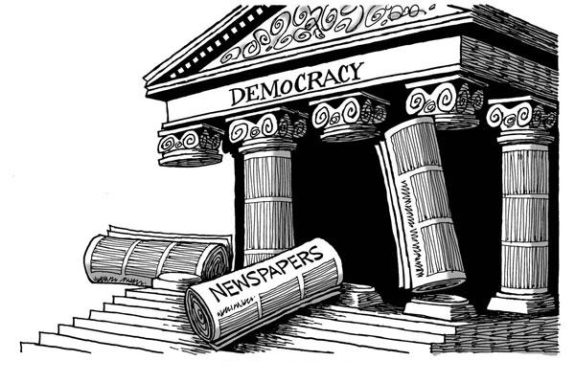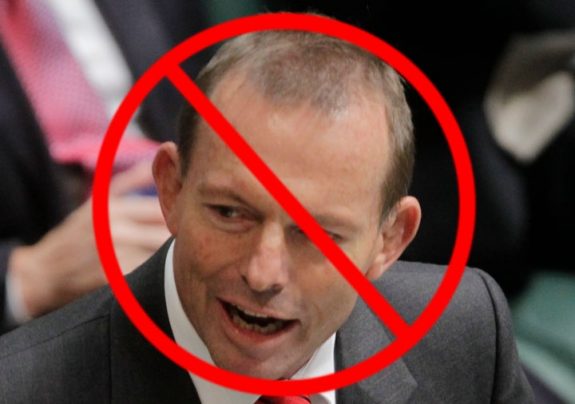This is Democracy

500 BCE, Athens
This is Democracy.
Each year, 500 names are randomly drawn afresh from the pool of eligible voters. These 500 citizens will serve the next year as the legislators for the city. All citizens of Athens are required to vote on any new law that this body creates. Votes are won by a simple majority: one voter, one vote.
There are some people whose opinion does not count; who do not get to vote. In ancient Athens, these include women, children, and slaves. Modern estimates indicate that of up to 300,000 people living in the region at the time, about 20% have voting rights.
Political literacy is high. The opinions of the people are heavily influenced by the media of the day – political satire performed in the theatres.
There are no politicians.
—
Democracy is dangerous. It takes power away from those who have it, and distributes it amongst those who may have different ideas. It cannot be easily controlled, only influenced. It equalises and it disempowers the powerful.
Thus, since time immemorial, those with responsibility for administering democracy have sought to control its use by limiting the people who may participate. Slaves, foreigners, women, coloured people, non-citizen residents – they’ve all, at some point or another, been excluded from the processes of power.
The great likelihood is that currently, you who are reading this blog post are amongst them.
It is sometimes asked why, if somewhere between 64% and 68% of the Australian people want gay marriage legalised, the major parties are so intransigently opposed to it, or why with seemingly a high proportion of Australians simultaneously outraged by Labor’s and the Coalition’s plans on refugee arrivals, both parties continue trying to out-hardline the other. (I’ve found it impossible to find an actual figure for the proportion of Australians for whom this is a driving issue. If anyone can point me to this number it would be appreciated!
The answer, of course, is that the seats that matter, the swing seats, do not share the outlook of the whole of Australia. Both major parties spend huge resources polling and evaluating their standing in the swing seats.
Both parties target individual seats for marketing, for campaigning, for pork-barrelling and election promises, and both parties heed the opinions and prejudices of the people in these marginal seats as a matter of high priority.
If a policy is adopted that panders to a swing seat, the parties can do this without fear of the outcomes because they know that the rest of Australia will either vote for them or not vote for them, regardless of actual policies.
Of the 144 seats in the Australian parliament, 74 are “safe” – they require a minimum of an 8% swing in order to change hands. The traditional view of “safe” seats is any seat that requires a minimum of a 6% swing, so I’m being conservative here.
Technically, every seat in Australia can change hands at any election. At the 2010 election, some electorates swung by as much as 13%. 18 of the 144 electorates swung by over 8% (17 of them in the direction of the Coalition).
At the 2013 election, with the current projected swings based on polling, any seat on 10% or less might be regarded as a marginal seat.
—
1789 AD, United States of America
This is Democracy.
“We the people”, enshrined in the Declaration of Independence, have the right to vote for their Congress. Most major offices in the country, up to and including the office of President, are elected positions and the people can vote for their preferred candidates to hold them. Legislation is passed by the Congress and ratified by the President.
There are some people whose opinion does not count; who do not get to vote. In post-independence USA, these include women, children, slaves, negroes, native Americans, and non-landholding males. Modern estimates indicate that of up to 5.3 million people living in the USA at the time, about 17% have voting rights.
Technically, the United States is a Democratic Republic. There is already, effectively, a two-party system in operation, with Democrats and Republicans making up the two main schools of thought.
—
The outcome of the feverish focus on swing seats is twofold. It results in two paradoxically opposed effects. It pushes the parties closer together on big-ticket items, and it increasingly leads to class politics in day-to-day governing.
Both parties are desperate to win the votes of a handful of electorates. Electoral strategy revolves around picking your battles and pitching your offer directly at the heartland of the undecided.
With a limited number of seats in contention, and the stakes so high, both parties have incentive to follow the same path. In Australia, at present, this is slightly right-of-centre.
On refugees, on infrastructure, on education, on the economy, both parties are guilty of me-too politics, as clear vote-winning policies are adopted and co-opted. The opinion of the majority of Australians is not the major consideration. This is one contributing factor to the electorate’s general disengagement from politics in recent years.
The other effect is one of separation, as Labor and the Coalition focus their policy development on particular demographics. Electorates vote on the basis of the people who live there, and most electorates have a character, a homogeneity of age and social class.
As Labor continues to court the vote of the young and the educated, they develop policies that suit their safe electorates. As the Coalition continues to pitch to the battlers and the owners of small businesses, they develop a different set of policies that suit their own electorates.
Neither party is operating in a centric fashion with concern for the opinions of the electorates and demographics that they historically have not appealed to and can’t afford to put effort into winning.
—
2013 AD, Australia
This is Democracy.
All adult citizens of Australia are expected and required by law to enrol to vote, and are eligible to vote in local, State and National elections. Federal elections allow citizens to elect representatives for their local area, who despite election may not be a part of the governing party. All elected representatives may bring legislation to the house regardless of party affiliation.
Everybody gets to vote, but there are still some people whose opinion does not count. In practical terms, residents who do not follow the majority view of their electorate have no effective voice in parliament and their opinions are not important in the development of policy by the major political parties.
If we estimate that the Australian Electoral Commission (AEC) has been reasonably successful in distributing votes evenly between electorates, and if we assume further that an electorate requiring at least an 8% swing is “safe”, then of 22.3 million citizens, about 49% live in electorates where their vote is actually likely to be courted. 51% of the populace lives in electorates where the outcome is assumed.
The people are largely ignorant about the day-to-day processes of government and legislature, with attention paid to a small number of big-picture policies and ideologies, and most activity of the Parliament unseen and unremarked.
—
So what is the answer?
I increasingly feel that the two-party system is broken. Has representative democracy had its day? The day becomes ever nearer when we will have the technical and administrative ability to develop policy on the basis of the intentions of the people as a whole, rather than a representative attitude of the people in your suburb.
A time when every major decision is treated as a referendum and every voter’s attitude is counted, even if only in determining the overall intention of law. (Much of modern legislature is far too complex to be suitable for a census of opinion, but bureaucrats and lawyers can argue the semantics of law required to implement the expressed will of the people.)
This may be a pipe dream and unlikely in the foreseeable future. Until then, the best we can do if we want to ensure our voice is heard is to move to live in a swing electorate.
Co-posted on Random Pariah on 31 August 2013.
Like what we do at The AIMN?
You’ll like it even more knowing that your donation will help us to keep up the good fight.
Chuck in a few bucks and see just how far it goes!
Your contribution to help with the running costs of this site will be gratefully accepted.
You can donate through PayPal or credit card via the button below, or donate via bank transfer: BSB: 062500; A/c no: 10495969










